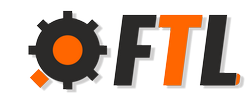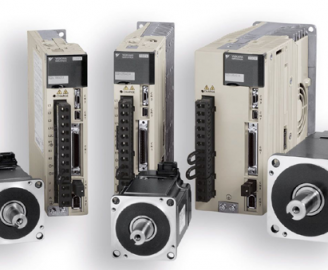Servodrive is a drive for maintenance and control of the technological devices, for example, the machine. This is an electromechanical device designed for matching of speeds between the electrical and mechanical parts of the machine and at the same time for control of movement of the technological processing equipment (spindle, laser tube) within the table surface.
It is produced based on the stepper or synchronous motors. Considering great advantages of the synchronous motors comparing with the stepper ones, 95% of all modern servo drives are manufactured based on the synchronous ones.
Besides the motor, a servo drive is also equipped with the control unit (in a separate casing or controller integrated into the motor casing), frequency converter and encoder (RPM sensor). Availability of feedback from the encoder distinguishes the servo drive from the standard servo motor. Due to the presence of a signal from the encoder of shaft rotation angle, the servo drive could perform high-precision positioning of linear displacement by means of the controller. In turn, availability of the frequency converter performs the inverse function – control of speed of the rotary motion, which could vary in size, both decreasing and increasing. Herewith, torque of the servo drive does not change, as the synchronous motor possesses absolutely rigid electromechanical characteristic that significantly differs it from the asynchronous motor. In turn, change of speed of shaft rotation of the servo drive results in change of speed of translational (linear) motion.
Thus, it can be argued that a servo drive is the perfect device for conversion of rotary motion into progressive, which is very necessary for operation of the most popular mechanisms in the production – machines.
FTL Company applies the servodrives, which are the best as for the quality and characteristics and of the most famous manufacturers: Estun, Panasonic, Yaskawa, Siemens, etc.


